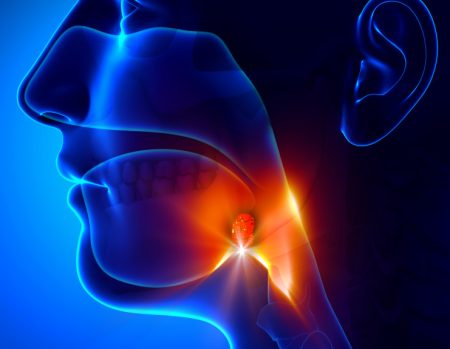Source: www.mercurynews.com
Author: Dr. Bryan Fong
Over the past three decades, a dramatic increase in a new form of throat cancer has been observed throughout the industrialized world. The good news is that it’s potentially preventable — if parents get their children vaccinated.
The disease shows up primarily in men, typically between the ages of 45 and 70. Those who are affected often lead healthy lifestyles. They do not have extensive histories of smoking tobacco or consuming alcohol, which are risk factors for traditional throat cancers.
The rate of this new cancer has been increasing 5 percent per year and today, it is more than three times as common as in the mid-1980s. If you think this scenario sounds like a slow-moving infectious medical drama (think Contagion or World War Z), you would be right.
The source of this cancer is a virus, the human papillomavirus (HPV) — the same virus that causes most cervical cancer in women. It’s widely known that parents should get their girls vaccinated. Now, with the surge in oral HPV cancers, especially in men, parents should get their boys vaccinated too.
Currently, vaccination against HPV is recommended by the Centers for Disease Control for children and young adults ages 9-26. The vaccination includes a series of two or three injections; the side effects are mild.
Ideally, the vaccinations should be administered before someone becomes sexually active. That’s because HPV is spread via sexual activity. Risk of HPV infection and throat cancer increases with the number of lifetime partners.
Men have a lower immune response to the virus than women, which explains the predilection of this disease for men. It’s difficult to know if someone has an active oral HPV infection because there are no symptoms. Currently, there is no widely accepted test for HPV in men.
Chronic infection leads to cellular changes within the lymphatic tissues in the throat, specifically the tonsils and base of tongue. Over the course of 20-30 years, these changes can result in the formation of cancer.
Throat cancer caused by HPV is insidious. The primary tumor in the tonsil or base of tongue often causes little to no symptoms. Early signs of this cancer may be a mild sore throat, occasional blood-tinged oral saliva, or increased or new snoring.
Often, the first sign of the cancer is a lump in the neck after the cancer has spread into the lymphatic system. The lump may arise quickly and then shrink to varying degrees, lulling one into complacency.
Early stage cancer can be treated with surgery or radiation. More advanced cancers are treated with combined therapy such as surgery followed by radiation therapy, or chemotherapy in conjunction with radiation therapy.
Finally, some good news. Treatment for HPV-related throat cancer is successful in about 90 percent of cases and is significantly more successful than treatment of non-HPV related throat cancer.
But, as successful as medicine has been in treating this cancer, an even better alternative is prevention via vaccination. Initial studies have shown that vaccination produces an immune response to HPV and reduces the rate of HPV infection. Given time and good vaccination coverage, a decline in throat cancer is expected.
In summary, here are a few simple take-home messages: If you have a lump in the neck or a chronic sore throat, don’t procrastinate. Have your doctor check it out. If you are a partner of someone with these symptoms, strongly encourage your partner to see his or her doctor.
If you have children ages 9-17, talk to your pediatrician about HPV vaccination. If you are 18-26 years old, talk to your primary care doctor about vaccination. These simple steps may save your life or the life of your loved one.
Note: Dr. Bryan Fong is the senior practicing head and neck surgical oncologist for Northern California Kaiser Permanente.


Leave A Comment
You must be logged in to post a comment.